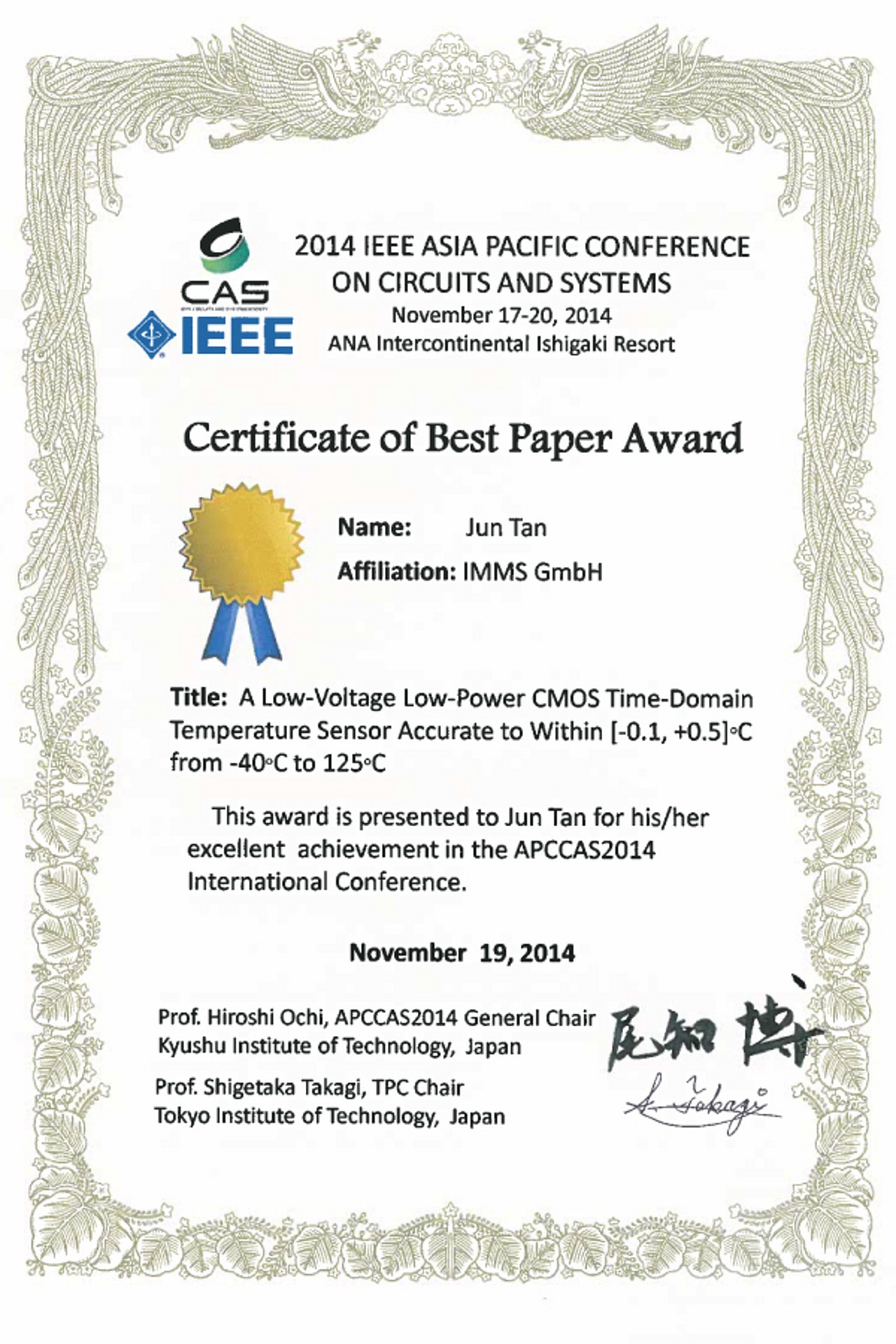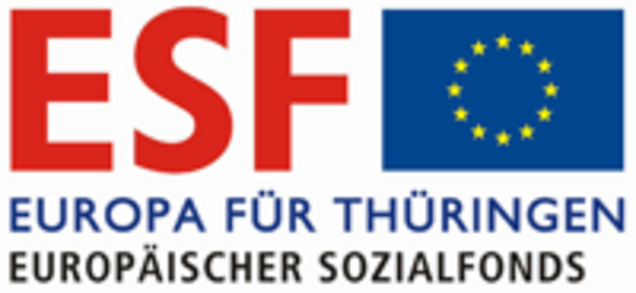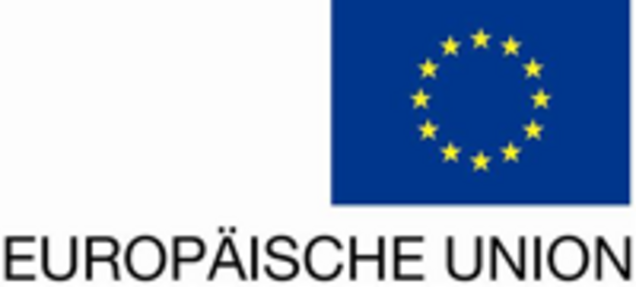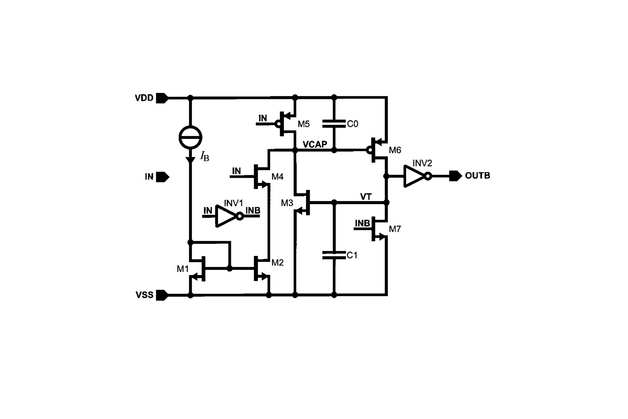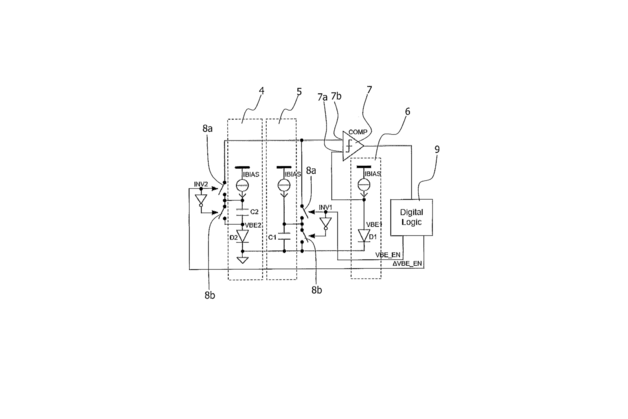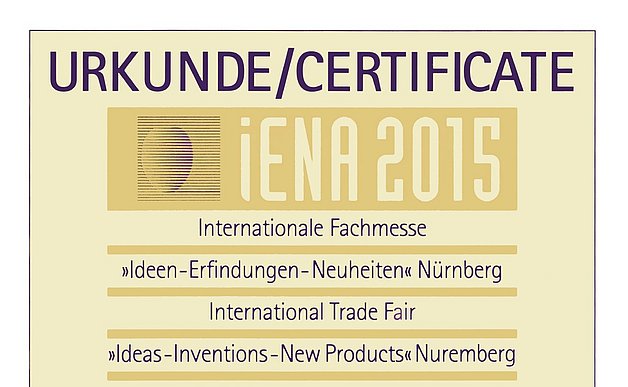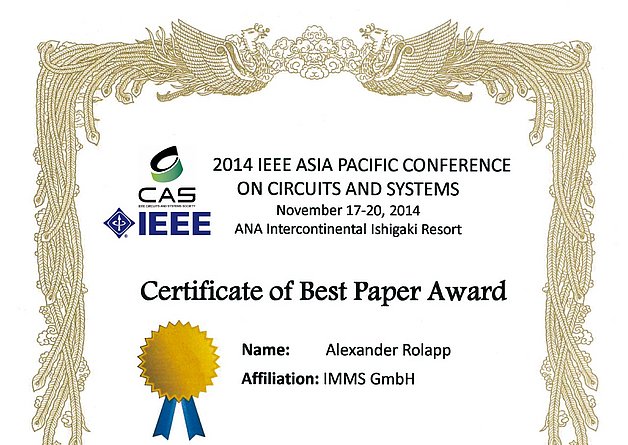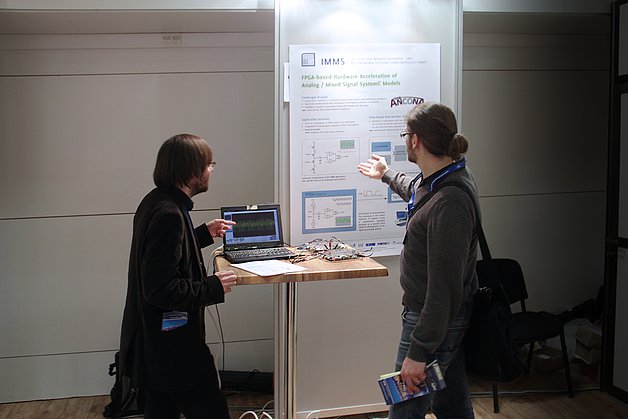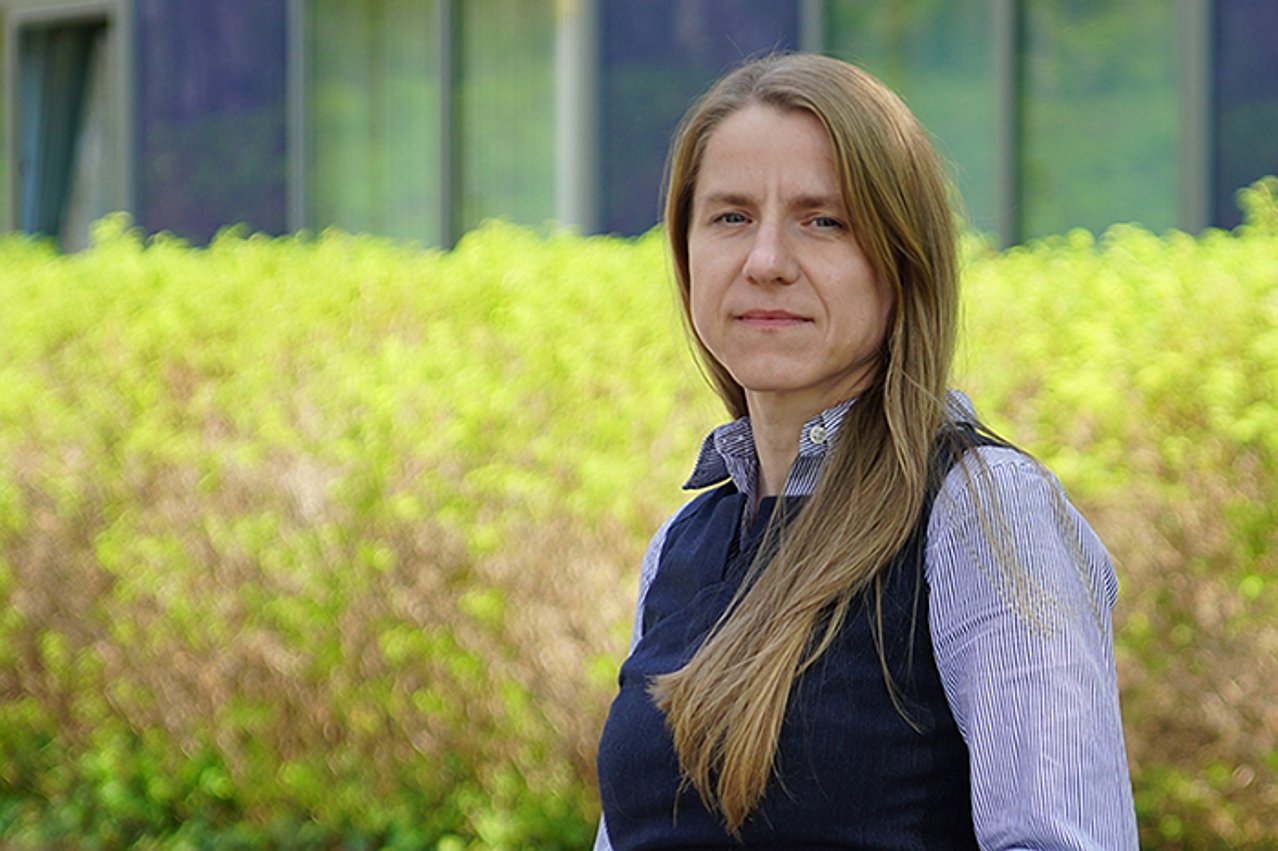Press releases
IMMS Receives Best Paper Award For Work On Energy-Efficient Sensor
The CMOS temperature sensor was presented at the APCCAS 2014 and is designed for energy-autonomous sensor systems with power supply from MEMS energy harvesting modules.
Ilmenau, Germany, 20.11.2014. At the IEEE Asia Pacific Conference on Circuits and Systems (APCCAS 2014) in Okinawa, Japan, IMMS researchers received the Best Paper Award for their article and lecture " A Low-Voltage Low-Power CMOS Time-Domain Temperature Sensor Accurate To Within [–0,1; +0:5] °C From –40 °C To 125 °C“. The authors presented a novel CMOS on-chip temperature sensor for use in low-voltage low-power applications. It is part of the the GreenSense research project which sees IMMS doing R&D on a modular technological platform in association with the ZMN (Centre for Micro- and Nanotechnology) and the RF and Microwave Research Laboratory at the Ilmenau University of Technology, Germany. The platform is to enable highly complex, self-powered multimodal smart sensor networks to be efficiently constructed and operated. The sensor networks will open up a wide range of applications, particularly in the monitoring and control of industrial production, transport and operational processes, so that those processes become more energy-efficient and less resource-intensive.
The aim of the “GreenSense” research group is to develop low-power smart-sensor components for a variety of physical quantities using only low-cost CMOS integrated circuit manufacturing processes wherever possible. The intention is that each single parameter, temperature for instance, should be measured and digitized using well below 10 μW of electrical power. Such a sensor could run continuously on a single AA battery cell with a typical capacity of 1000 mAh for more than 10 years.
Due to its low power consumption, the presented CMOS temperature sensor is suitable for use in energy autonomous sensor nodes that are not powered externally or by batteries but are capable of harvesting electrical energy from ambient sources. Therefore, research in the "GreenSense" project also focuses on the development of a technology for manufacturing miniaturized energy harvesting modules based on micromechanical vibration generators and integrated ultra-low power voltage converter circuits. The Institute presented this work at the conferences "Analog 2014" in Hanover, Germany, and the "ESSCIRC 2014" in Venice, Italy.
At the APCCAS 2014 conference in Okinawa, Japan, IMMS’ researchers introduced solutions for an accurate and energy-efficient operation of the temperature sensor within a wide temperature range. Therefore, the sensor uses diode-connected BJTs to generate a PWM signal whose duty cycle is proportional to absolute temperature with high accuracy over a wide temperature range. The duty cycle is determined with a simple digital counter and converted to a digital code. Compared to other time-domain temperature sensors, our design requires only a single bias current and one comparator to generate the PWM signal. After a digital calibration at two temperature points, the sensor is accurate to within [–0.1, +0:5] °C in the temperature range from –40 °C to 125 °C and ±0.1 °C from 0 °C to 125 °C. The sensor has been fabricated in a 0.35-µm CMOS technology. It draws only 2.5 µA from a 1.4-V supply, corresponding to a power dissipation of 3.5 µW.
Lecture: Jun Tan, Alexander Rolapp, Eckhard Hennig: “A Low-Voltage Low-Power CMOS Time-Domain Temperature Sensor Accurate To Within [–0,1; +0:5] °C From –40 °C To 125 °C“, 12th IEEE Asia Pacific Conference on Circuits and Systems (APCCAS 2014), 19.11.2014 (Sensor Systems and Emerging Memory Technology Session), Ishigaki Island, Okinawa, Japan.
Further information: http://www.apccas2014.org/
Related content
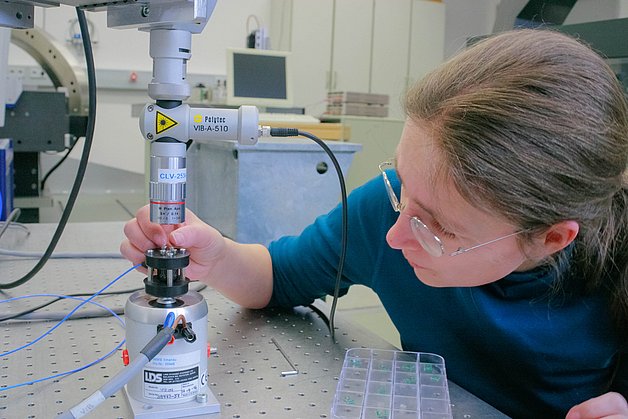
Project
GreenSense
For bio-analysis IMMS developed energy-efficient multi-parametric RFID microsensors and energy harvesting modules for operating autonomous sensors.
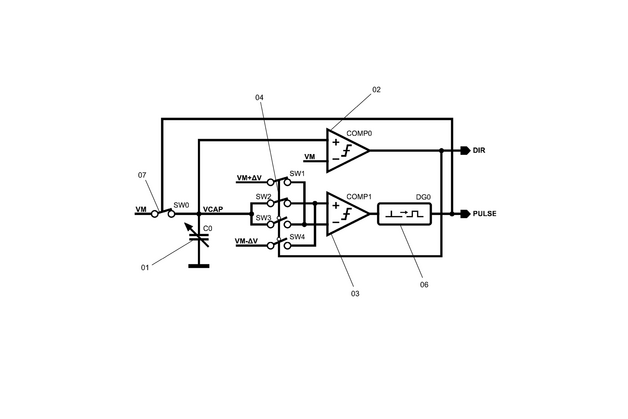
Patent
DE 10 2013 113 378
Method and electronic circuit for determining the time instant of an extremum of a time-varying capacitance
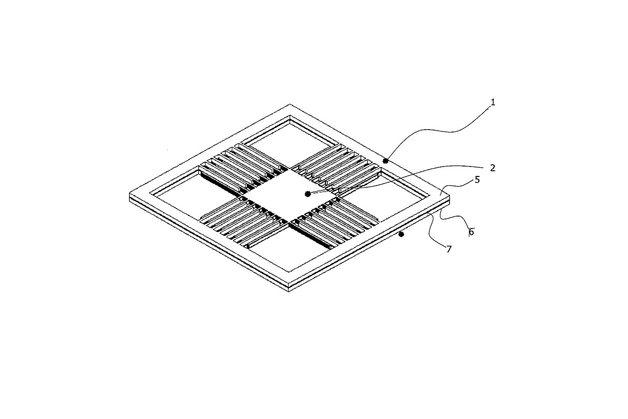
Patent
DE 10 2012 215 600
Capacitive energy converter and method of operating a capacitive energy converter
Contact
Contact
Dipl.-Hdl. Dipl.-Des. Beate Hövelmans
Head of Corporate Communications
beate.hoevelmans(at)imms.de+49 (0) 3677 874 93 13
Beate Hövelmans is responsible for the text and image editorial work on this website, for the social media presence of IMMS on LinkedIn and YouTube, the annual reports, for press and media relations with regional and specialist media and other communication formats. She provides texts, photographs and video material for your reporting on IMMS, arranges contacts for interviews and is the contact person for events.



